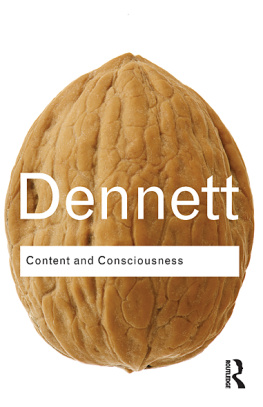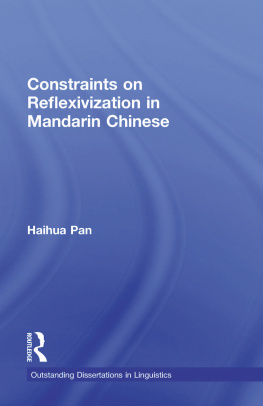Published by
Routledge
The edition published by Routledge-2012
2 Park Square, Milton Park, Abingdon, Oxon, OX14 4RN
711 Third Avenue, New York, NY 10017
Routledge is an imprint of the Taylor & Francis Group, an informa business
Transferred to Digital Printing 2006
Distributed in the United States by
International Scholarly Book Services, Inc.
Beaverton, Oregon 97005
Library of Congress Catalog Card No. 79171826
First edition | 1923 |
New impression | 1971 |
ISBN: 978-0-714-62000-8 (hbk)
ISBN: 978-1-136-26159-6 (ebk)
Publishers Note
The publisher has gone to great lengths to ensure the quality of this reprint but points out that some imperfections in the original may be apparent
Preface
STUDENTS expose abuses, professors dissect reforms. At any rate, these are their tendencies. The young investigator, blessed with enthusiasm and curiosity, wishes to do something definite. The elderly teacher, hard-worked, tired, and disillusioned, knows that most reformers exaggerate, and that most general statements require qualification. He holds a watching brief for accuracy, and feels impelled to point out that there is something to be said for the status quo. Yet in his heart he envies youth.
Miss Campbell, happily, is still in the first stage of the investigators career. She has devoted herself to tracking out a long and involved story of certain industrial experiments which became social evils. The subject is depressing because so much of it is a record of wrong and failure. Many of the details are dry and some are loathsome. Of the darker and more tragic side of the tale much has been hidden or lost and can never be known. Where light is thrown upon it, it is usually the very dry light of statutes, blue-books, regulations, political speeches, pamphlets, and clippings from newspapers. The research student has to cut a way through a difficult jungle. The result is redeemed from dullness by the political importance of the subject and its human interest, by the humanitarian feeling aroused, by the passion of a racial controversy and the lurid horror of many of the episodes. Miss Campbells book, though an exposureincidentally a terrible exposureis not an attack. It is a statement of a mass of facts. If they mostly tell one way, that is not her doing; there is no sign that they have been selected for that purpose. The arguments for various forms of the coolie traffic are fairly quoted and set out. The overstatements of men denouncing it are shown up from time to time. In one division of the book, indeed, Miss Campbell seems to me rather to understate the case against Chinese immigration. That is when she is dealing with its practical demerits in Australia and New Zealand. But in those countries the friends of Chinese immigration are now few and unpopular, and to try and be a little more than fair to the weaker side in what was a fierce controversy is the most respectable defect that a writer can have. The chief merit of her book, apart from the evident industry displayed, is the resolute persistence of the authoress in getting to the bed-rock of fact. Perfervid passages from speeches and articles are only quoted sufficiently to show the views held by parties and the feelings the coolie question aroused. For the most part she relies on blue-books. They are not romantic narratives. But there is this advantage in relying on them: when the matter dealt with is a great social abuse, blue-books usually understate the case for the prosecution. Miss Campbells readers can feel throughout that their feelings are not being deliberately, much less unfairly, worked upon.
The mass of hard facts in her book require subsequent thought and digestion. They certainly deserve them. As one gradually constructs a picture and history of the Chinese coolie labour systems, one wonders at first how these sinister experiments, so unattractive at their best, so repulsive at their worst, came to be tried in civilized countries in the nineteenth and twentieth centuries. One of the reasons is that they were usually tried in succession to other systems either worse or not very much better, just as negro slavery was begun in the New World as a substitute for the Indian labour which the Spaniards were working to death. Even Las Casas thought that the change might be a gain to humanity. In the same way Chinese indentured coolies were brought into the West Indies to take the places of emancipated negro slaves. In Australia, the first Chinese workers were imported by squatters who were being deprived of the services of assigned convict labourers by the stopping of the convict system. In South Africa, Chinese were imported because the Kaffir labour recruited for the compounds of the Rand was for a time in short supply. In Malaysia the position was, of course, different. Asia is the Chinamans home; he often found his way to the Malay country on his own account. His presence there was natural, and he could play a useful and legitimate part. Chinese labour there, taken by itself, was not a bad thing. What marred the picture was the evil bred by the credit-ticket and indenture systems, and the shameful lack of, or laxity in, the supervision and protection of Chinese labour in Malaysia itself. From its beginning in, say, 1845, there was, until 1877, virtually no Government regulation at all. After that it remained faulty right up to the end of the indenture system in 1911. The circumstances of their origin, then, explain why humane men and a well-meaning bureaucracy like the Colonial Office committed themselves to various experiments of arranging for or sanctioning the importation of gangs of male Chinese to work under semi-servile conditions beneath the British flag. They do not explain the persistency with which planters or mine-owners clung to bad systems or the apathy with which officialsin some placesfailed to cope with glaring abuses. Men, however, once committed to a system, are slow to open their eyes to its weaknesses. The shortcomings of officials may often be explained by Dr. Johnsons Ignorance, sheer ignorance, Madam! But officials ought not to be ignorant. In truth, the Colonial Office does not cut a very impressive figure in this book. It was often timid, dilatory, and mistaken. If it did the right thing in the end, that was apt to come after many days. Of course, Downing Street is a long way from the Tropics and the Antipodes, and the fear of ruining vested interests and British enterprise is natural. It is only fair to say, moreover, that certain Secretaries, like Lord Stanley and Lord Harcourt, show up very well. The outspoken courage, moreover, shown by British officials like Sir William Des Vux, Consul Robertson, and Commissioner Parr, in showing up local abuses, should not be forgotten. And if Downing Street was slow to move, public opinion was slow also.





